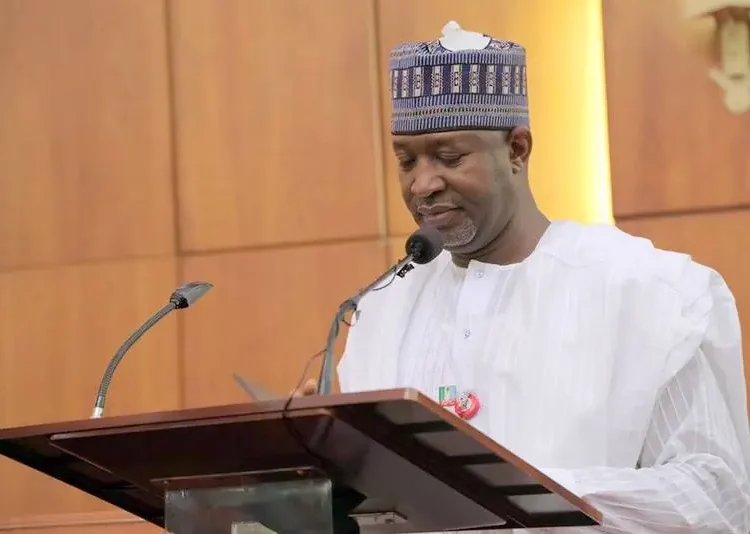Out of the 32 airports across the country, only six operate 24-hour while the remaining 26 do daytime operations, thereby, making government and airline operators operate at huge losses.
The operation of the airports were restricted to daytime because of the absence of Airfield Lighting (AFN). The absence of these critical airport infrastructure has made night operation very difficult and absolutely impossible for airlines operating the said routes.
However, the absence of night operations, has made experts refer to the airports as daytime or sunset airports as infrastructure available at such airports cannot enable flights to operate into the night. It means no airline of aircraft can service such airports after 6:30 pm.
According to reports, it was gathered that out of 22 airports managed by FAAN, only Abuja, Port Harcourt, Benin City, Enugu, Kano, and Kaduna airports have airfield lightning to enable flights land and take off on or after 6.30pm, while others such as Jos, Yola, Maiduguri, Anambra, Kebbi, Sokoto, Katsina, Ibadan, and Akure, Calabar, have operational hours limited to 18.00 hours.
For instance, on 2nd May, 2022, Air Peace airline returned over 100 passengers to Lagos after one of its plane could not land at the Anambra International Airport, due to lack of Airfield Lighting.
The air return was due to darkness that engulfed the airport. According to the pilot, the runway was dark as at 6pm, thereby, making it unsafe for landing of the aircraft.
Since the pilot couldn’t land the plane, he did an air return to Lagos 15 minutes before he was due to land on the Anambra tarmac of the new Cargo/Passenger airport.
A source at Air Peace who confirmed the development said the aircraft could not land at the airport because the runway lights were not serviceable at the time.
However, it was gathered that commercial airline operators are losing an average of N4 million per flight, N12 million in every flight, N360 million in 90 flights and N4.3 billion annually on every flight lost to sunset airport operations.
To find a lasting solution to the annual loss, League of Airports and Aviation Correspondents (LAAC) held a conference titled, ‘Sunset Airports: Economic and Safety Implications’, where industry stakeholders deliberated and rued the losses the economy incurred to sunset airports.
Speaking, the chief operating officer, Ibom Air, George Uriesi, said lack of 24 hours flight operations to major routes in Nigeria was impeding the growth of the airlines and the sector.
Uriesi while delivering his paper, ‘Maximising Runway Utilisation: A Nigerian Airline Perspective,’ further disclosed that restrictions of airlines to daytime operation has led to a huge underutilisation of aircraft fleets by the Nigerian airlines as against the global industry standards.
He said, “This is due partly because of too many impediments in the operating environment that limit airline productivity. These include limited runway availability across the domestic network, multiple operational infrastructure deficiencies, poor organisation and many others.”
However, to solve the challenge, Uriesi appealed to the government to prioritise airfield infrastructure and provide the necessary Instrument Landing System (ILS) and accompanying accessories for every airport, while also keeping the aerodromes open to meet the needs of airlines and other users.
Besides, he advised that the government should make current, approved master plans a regulatory requirement for every airport and illegalize non-adherence to the master plans by any organisation.
“Establishing a local aircraft lessor, financing vehicle that would allow for the domiciling of aircraft payments in local currency would make a huge difference to the air transport sector in Nigeria,” he added.
On his part, the director, Centre for International Advanced and Professional Studies (CIAPS) Prof. Anthony Kila, in his paper presentation, said that NCAA should encourage the airlines to succeed without the relegation of safety.
In his paper presentation titled, ‘Passenger Experience In Daylight Airports,’ he stated that the aviation industry in the country was bedeviled with myriads of crises, stressing that high cost of flights and shutting down of airlines signified a bad omen for the country.
Kila called for total rethink and resetting of aviation industry by all players in the sector.
Kila also canvassed for the establishment of Bank of Aviation, which would make access to foreign exchange by airlines easier.
“We need to act swiftly and decisively to deal with this situation so that this very bad situation we have at hand does not turn into an unmanageable disaster. Decisive actions in this case will require a total rethink and resetting of the way we conceive and manage our aviation manners.
“There is a prevailing idea in the general public and amongst too many leaders of thought, opinion moulders and indeed policy makers that aviation is a sector that services the elites or the privileged, this is however an anachronistic misconception that needs to be deliberately and assertively corrected.
“Those who know and can need to find the clarity of mind and courage of voice to explain to the rest of the society that in the times we live in and with the size and structure of Nigeria, aviation has become and will remain a basic and essential infrastructure. With such conception in mind, the role of regulators in the sector will be radically modified. “
Also, Bankole Bernard, suggested that instead of incuring loses, the federal government should turn the 18 unviable airports in the country into shopping malls to generate revenue.
According to Bankole, only four airports, Lagos, Port Harcourt, Abuja and Kano, out of 22 airports in the country are viable, saying the operations of the other 18 airports have been unviable over the years, he added.
He urged the federal and state governments to consider the construction of shopping malls and other facilities that would attract more commercial activities to the unviable airports.
He emphasised that aviation operates using international standards and appealed to governments at all levels to take a cue from other countries which ensured commercial viability of their airports by thinking outside the box.
“What are the possible solutions to consider given the numerous challenges we are faced with in the industry? We can start with the modernisation of airport terminals with shopping malls.
This will contribute to the commercial viability of the airports and other necessary infrastructures like the internet and constant power supply to support businesses.
“We must begin to think of an alternative power supply like renewable energy to keep the airports functional and reduce the cost of operation in the long run.
“This will also make the airports viable and attractive.
“There is the area of interconnectivity within airports. The interconnectivity of the local airports to the international airports will contribute to the economic viability of the airports,’’ he said.
He argued that the suggestions he made would further enhance commercial activities and boost non-aeronautics revenues to the 18 airports that had remained unviable.
He added that government could also consider the provision of affordable hotels, which would give credence to investments in the industry.
Bernard emphasised that the ability to provide Bed & Breakfast hotels around the terminals of some of the moribund airports would be of great attraction, while also increasing the viability of the airports as well.





